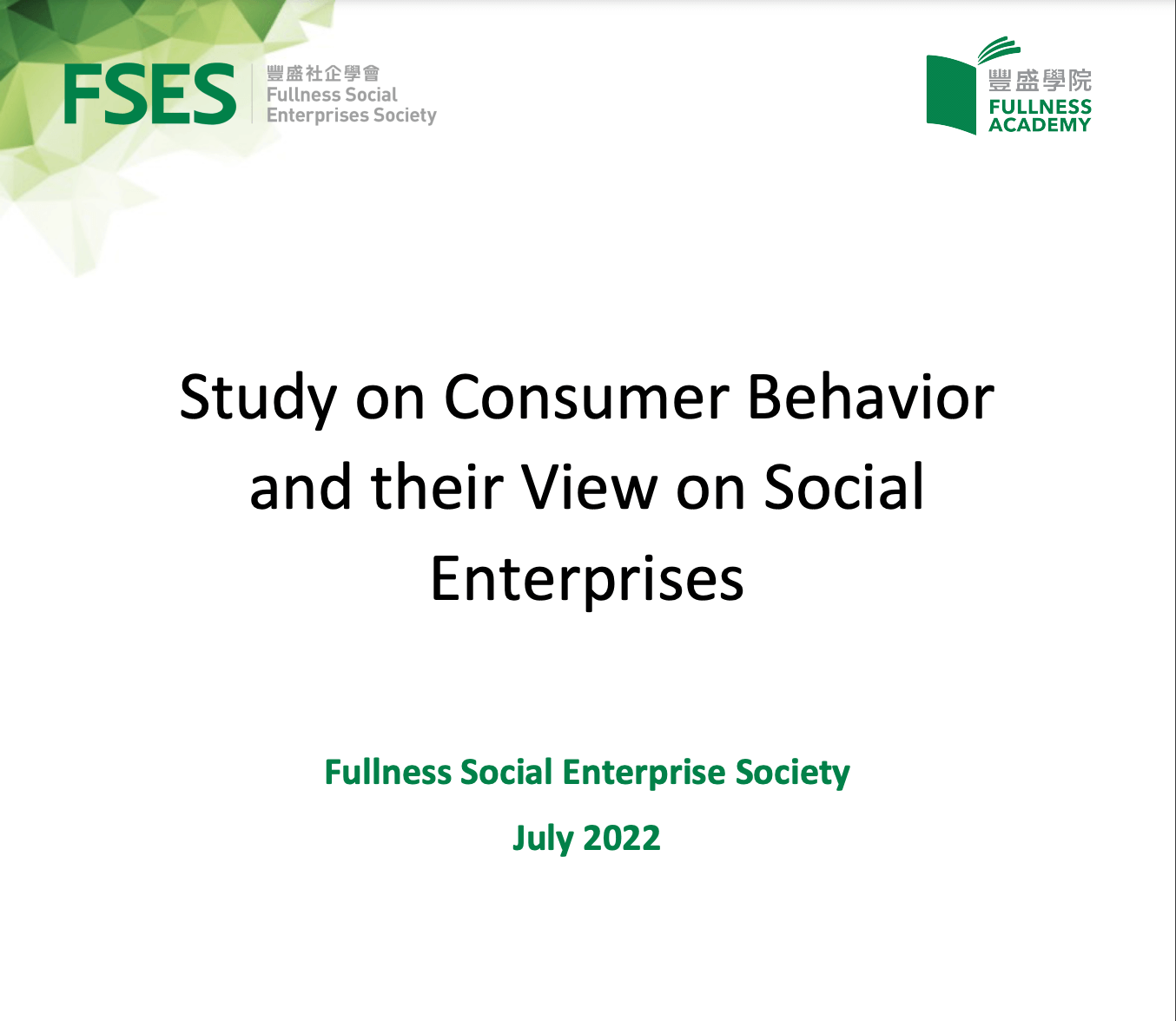- Home
- Discover Social enterprise
- Study on Consumer Behavior and their View on Social Enterprises

Study on Consumer Behavior and their View on Social Enterprises
Executive Summary
Background
1. This research , "Study on Consumer Behavior and their View on Social Enterprises," is conducted by Fullness Social Enterprise Society (FSES). The research objectives of the study include:
a. examining the knowledge of consumers toward the social enterprise (SE);
b. examining the consumption pattern and consumer behavior in Hong Kong;
c. identifying the intention and motivation of consumers on buying the product and service on social enterprise; and
d. understanding the willingness of the consumer to spend on social enterprise.
2. The research team adopted a mixed-method design to collect quantitative and qualitative data from the consumers in Hong Kong through a survey (N=217) and in-depth interviews (N=8).
Key findings
3. For general consumption, 79.3% of respondents consider price, 60.4% consider quality, 53.9% consider practicability, 35% consider the environmental causes, which are the top three reasons for purchasing. Among 217 respondents, 49.3% will consider other "social purpose-driven factors."
4. 99.1% of respondents have a positive first impression of social enterprise; more than 50% of respondents think that social enterprise can help people.
5. Only 47% believe that their consumption behavior can support resolving social problems.
6. 11.1% of respondents expressed that they are willing to pay a higher price after knowing that the social enterprise contributes to the community with their work; 81.5% of the others expressed yes, but it depends on the differences in amount. On average, respondents would pay an approximate 30% premium on SE products.
7. Personal experiences are critical to whether a consumer is supportive of one social enterprise. It includes the satisfaction of using the product/ services and the person's life experience. These experiences arouse people's interest in the product/ work of social enterprises, but one requires to serve the user's needs first, while the other requires the social enterprises to tell their stories and social mission.
Conclusion
8. The awareness of the existence of social enterprises is high. However, the understanding is still on a superficial level that does not translate knowledge into regular action. Social enterprises need to promote their work by highlighting the social impact, not only the "sad story,"; and at the same time maintain the competitiveness.
9. More education is needed on purpose-driven consumption among the public on their power of purchasing action.